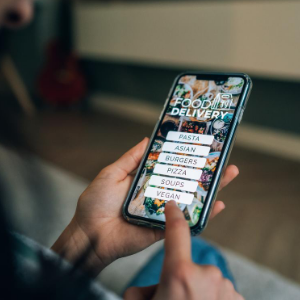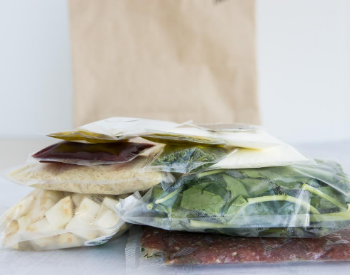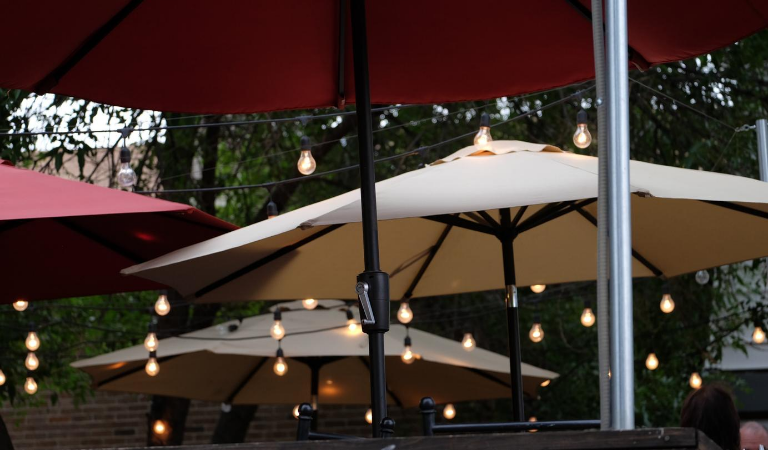Stats Of The Week
The State Of The Industry
On August 4, the National Restaurant Association sent a letter to Congress urging lawmakers to change the parameters of the Senate Heals Act that determine a business’s eligibility for a second Payment Protection Program (PPP) loan. Currently, the Act only accepts small businesses with fewer than 300 employees and a 50% loss in quarterly gross receipts over the previous year. With the current qualifications, 55% of restaurants would not be eligible for a second PPP loan, according to the NRA. The association is urging a 20% threshold which would open the eligibility to 430,000 restaurants.
Diners Show Their Support Through Online Ordering
According to a report from Toast, a restaurant software company that surveyed over 700 customers, the majority of restaurant consumers are regularly placing online orders during the COVID-19 crisis. 29% reported they order food online a few times a month, 25% do so a few times a week, 22% order once a week, and 4% order online multiple times a day. Only 14% of respondents did not place an online restaurant order in the past month. Also, 34% of respondents ordered take out and 29% ordered delivery using the restaurant’s native app while 21% said they used third-party apps for pickup and delivery. The survey showed that customers use DoorDash more than any other third-party platform followed by Uber Eats and Grubhub.
What’s Trending
NYC Bars & Restaurants Struggle To Pay Rent
According to a new survey by the New York City Hospitality Alliance (NYCHA), more than 4 out of 5 restaurants, bars, and nightclubs in NYC could not pay their full rents in July and more than a third could not afford to pay any amount. Many operators got little sympathy from landlords. 71% of landlords refused to waive any of the rent due, 61% would not defer payments, and 90% declined to formally renegotiate leases. The survey shows the difficulties operators are running into in the city where indoor dining and drinking have been prohibited, resulting in less income for restaurants.
“While complying with the necessary pause, our industry has been uniquely and financially devasted,” Andrew Rigie, executive director of the NYCHA, said in a statement to Restaurant Business. "Small businesses urgently need solutions from government leaders at the city, state, and federal level, inclusive of extending the moratorium on evictions, extending the suspension of personal liability guarantees in leases, pausing commercial rent taxes, providing landlords with needed support, and infusing small businesses with enough cash to weather the storm.”
Innovative Ways Restaurants Are Packaging Take Out Meals
At the start of the pandemic, restaurants pivoted to take out and delivery options in an attempt to generate business while dining rooms were shutdown. Family meals and meal kits grew in popularity and now five months into the pandemic, restaurants are still coming up with innovative solutions to keep customers coming back.
Lazy Dog Restaurant & Bar took their 2020 meals and turned them into 1950s-inspired TV dinners. The restaurant went retro and launched five classic Americana TV Dinners that come in the aluminum trays inspired by how TV dinners were packaged in the 50s. Moe’s Southwest Grill launched a new Nacho Meal Kit which comes with a video and infographic to direct customers how to dress up and construct nachos. Chips, two proteins, queso, pico de gallo, beans, sour cream, jalapenos, and salsa are all included in the meal kit. Dickey’s Barbecue Pit has created the Big Yellow Box as a new catering option where customers can order different combos that serve up to 12 people. The meals are served in a large yellow box and organized similarly as a buffet for guests to help themselves.
Grubhub Sales Spike During The Pandemic
Last Thursday, Grubhub reported $459 million in revenue during the second quarter which is a 41% increase from the same time period last year, according to a company release. This beat analyst expectations when the number of diners regularly ordering delivery rose during the beginning of the pandemic. Their average daily orders increase by 35% and gross food sales increased 59% to $2.3 billion in this year’s Q2 compared to last year’s Q2. Grubhub also saw an increase in partner restaurants including major chains like Burger King, Chipotle, and McDonald’s.
"The pandemic has been less of a temporary demand spike and more of a permanent catalyst, putting our business on a higher sustained trajectory," Grubhub CEO Matt Maloney and CFO Adam DeWitt stated in the letter to shareholders.
Shifting To Online Ordering Is Not As Easy As It Seems
According to an Upserve survey, 47% of restaurants said their transition to online ordering has been their biggest challenge during the pandemic. Fine dining and upscale restaurants found the transition particularly difficult because they did not offer online ordering before the COVID-19 outbreak. In an effort to withstand dining room closures, upscale restaurants have pared down their menus, stepped up their social media presence, and turned to third-party or in-house delivery. Fast-casual restaurants are the most optimistic about their future because their business models support off-premise operations while bar operators are the least optimistic.
Restaurants Get Creative With Outdoor Seating
With the majority of states closing restaurant dining rooms to reduce the spread of COVID-19, many states have blocked off streets, parking lots, and sidewalks to allow restaurants to expand their outdoor seating. Restaurants are now able to bring in much-need revenue by adding more tables to accommodate more customers.
Cuba Libre Restaurant & Rum Bar is located in the middle of a busy street in Washington, D.C., and
converted a parking lane into an open-air dining room protected by umbrellas and decorated with large
plants. In Brooklyn, NY, Greg Baxtrom, chef and owner of Olmsted, has utilized the restaurant’s small
backyard, which is typically used to grow vegetables and herbs, into a seating area arranged with
benches and small tables. In Chicago, IL, Indian restaurant Rooh took over an abandoned alley next door
and added patio seating and tables with guests sitting under a canopy of string lights.
Bright Spots In A COVID-19 World
Andrew Zimmern & Morgan Freeman Team Up To Support Restaurants
Celebrity Chef Andrew Zimmern’s television and digital production company, Intuitive Content, and the Independent Restaurant Coalition have released a new ad to urge Congress to pass the Restaurants Act. The Act would establish a $120 billion fund to help aid independent restaurants during the COVID-19 pandemic. The ad is narrated by Academy Award-winning actor Morgan Freeman where he says in the commercial, “Neighborhood restaurants are the lifeblood of our communities. They are where we come together and make life-long memories and right now they are facing extinction.” The legislation has bipartisan support and would supply grants to independent restaurants that can be used towards their payroll, rent, PPE, and other costs.
Local Fundraiser Goes Virtual This Year
This week, Huntsville, AL hosts their annual Rocket Chef fundraiser, which typically includes chefs from local restaurants competing with mystery ingredients to make unique meals in 20 minutes or less. In an effort to prevent the spread of COVID-19 while keeping the event alive, the Rocket Chef organizers have made the fundraiser go virtual with highlights from past years being posted online and local chefs coming on to speak about their culinary expertise. The money donated by the fundraiser goes to the Food Bank of North Alabama which has raised over $200,000 since 2014. The Food Bank has used the money raised to start new programs and help feed food-insecure families during the pandemic.
Quote Of Hope
“I am optimistic that the industry as a whole is going to survive. I think there are a lot of really creative people who have been working their asses off innovating and figuring out what is going to make sense.” - Serena Dai, editor of Eater NY








